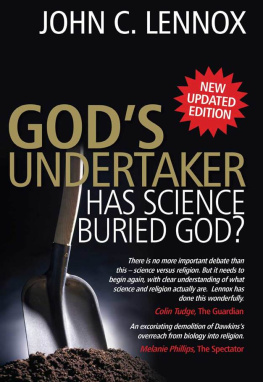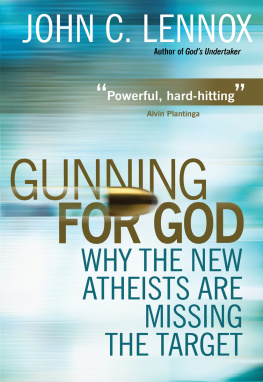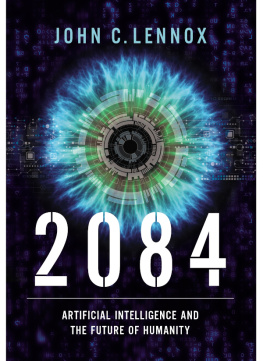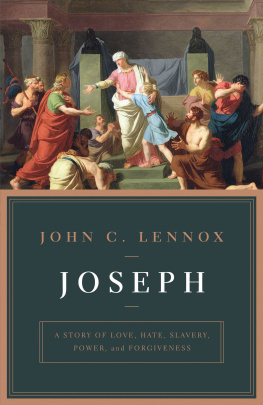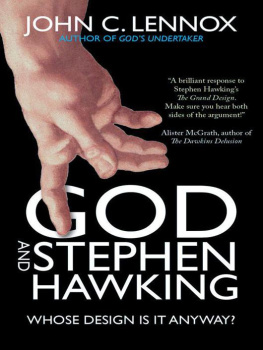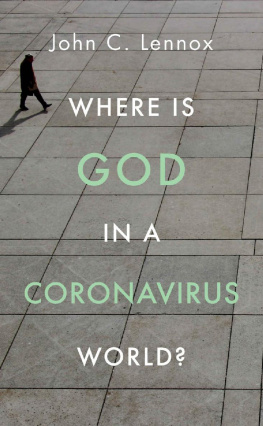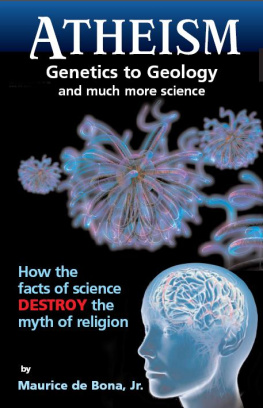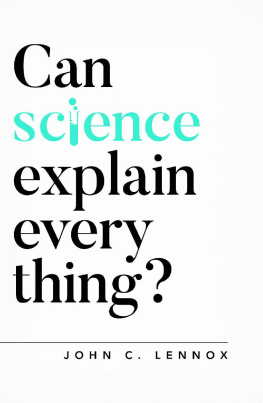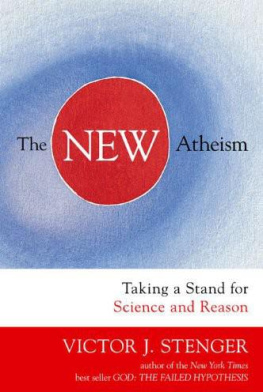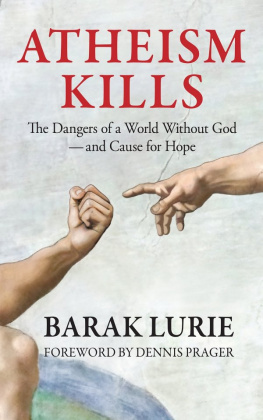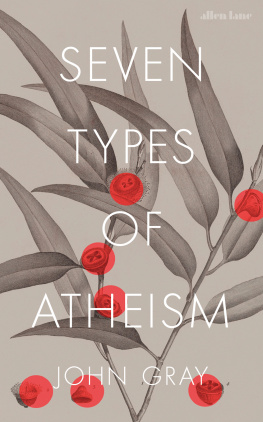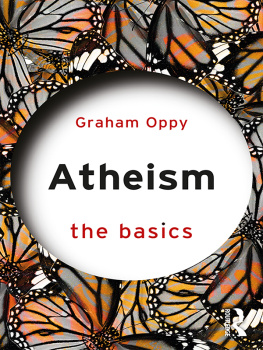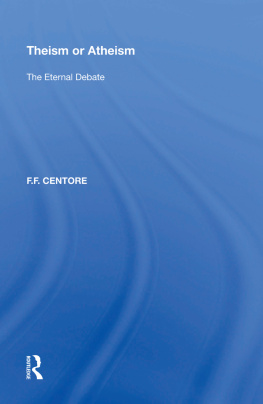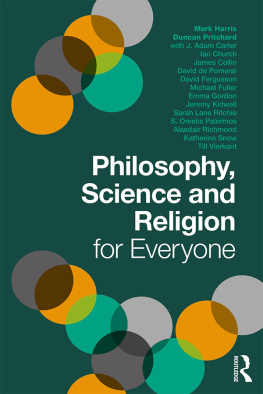A brilliantly argued re-evaluation of the relation of science and religion, casting welcome new light on todays major debates. A must-read for all reflecting on the greatest questions of life.
Alister E. McGrath MA DPhil DD ,
Professor of Theology, Ministry and Education, Kings College, London
This short book is more than just a critical analysis of the deep question posed in the title. It is a scientific detective story, which keeps the reader on his toes as the evidence is put in place bit by bit. John Lennox reaches his final conclusion in grand Hercule Poirot style, revealing the answer that he sees as the only possible solution to the pieces of evidence he has amassed along the way. If you begin this book thinking the answer to the question in the title is No, you will enjoy this masterful collecting of the evidence. If you begin it thinking it is Yes, maybe you wont in the end be persuaded to change your view, but you will certainly be faced with a lot of challenging and thought-provoking ideas that will certainly tax your powers of reasoning. Whatever your final conclusion, it is impossible not to find this a stimulating read.
Keith Frayn , PhD ScD FRCPath ,
Professor of Human Metabolism, University of Oxford
As an agnostic in the true sense of the word as not knowing, I found John Lennoxs book intriguing and providing much food for thought. The relationship between science, both biological and cosmological, and Christian beliefs is closely examined and evidence carefully marshalled to dispel the idea that the two approaches are incompatible. The author is a committed Christian and an internationally recognized mathematician. Will the reader be convinced by his arguments? I must leave this to others to judge. But whatever the conclusion, one must agree that this is a well-written and thought-provoking book and will contribute to reasoned discussion on a fundamental question: Has Science Buried God?
Alan Emery , MD PhD DSc FRCP FRCPE FRSE FRSA ,
Emeritus Professor of Human Genetics, University of Edinburgh
Gods Undertaker: Has Science buried God? by John Lennox is an important and topical contribution to the debate and questions about the origin of the universe and its physical laws, the origin of complex biological design and the purpose (if any) of mankind. There are some (both religious and materialists) who would like to give the impression that we have answers to these most fundamental questions, and, most disturbingly, even attempt to stifle and censor debate. However, it is my opinion that rather than inhibit further discussion we should encourage further intelligent debate about mankinds origins and that is why I believe it is essential that manuscripts such as Gods Undertaker be published and made available to the public so that they can judge for themselves.
Chris Paraskeva , BSc DPhil ,
Professor of Experimental Oncology, University of Bristol

Copyright 2009 John C. Lennox
The author asserts the moral right to be identified as the author of this work
A Lion Book
an imprint of
Lion Hudson plc
Wilkinson House, Jordan Hill Road,
Oxford OX2 8DR, England
www.lionhudson.com
UK ISBN 978 0 7459 5371 7 (print)
US ISBN 978 0 8254 7912 0 (print)
ISBN 978 0 7459 5911 5 (e-pub)
ISBN 978 0 7459 5910 8 (Kindle)
ISBN 978 0 7459 5927 6 (pdf)
First edition 2007
This edition 2009
10 9 8 7 6 5 4
First electronic format 2011
All rights reserved
Acknowledgments
Chapters 1. War of the worldviews, 3. Reduction, reduction, reduction, 11. The origin of information and Epilogue: Beyond science but not beyond reason Scripture quotations taken from the Holy Bible, New International Version, copyright 1973, 1978, 1984 International Bible Society. Used by permission of Zondervan and Hodder & Stoughton Limited. All rights reserved. The NIV and New International Version trademarks are registered in the United States Patent and Trademark Office by International Bible Society. Use of either trademark requires the permission of International Bible Society. UK trademark number 1448790.
This book originated in lectures given at a course entitled Faith, Reason and Science at the University of Oxford, Department for Continuing Education and at the Institute for the Philosophy of Science at Salzburg University, Austria. It represents an attempt to evaluate the evidence of modern science in relation to the debate between the atheistic and theistic interpretations of the universe and to provide a basis for discussion.
Cover: Danwer Productions/Alamy
A catalogue record for this book is available from the British Library
Distributed by:
UK: Marston Book Services Ltd, PO Box 269, Abingdon, Oxon OX14 4YN
USA: Trafalgar Square Publishing, 814 N Franklin Street, Chicago, IL 60610
USA Christian Market: Kregel Publications, PO Box 2607, Grand Rapids, Michigan 49501
Contents
To Sally
without whose love,
encouragement and support
this book and much else
would never have been completed.
Preface
What is the meaning of it all?
Richard Feynman
Why is there something rather than nothing? Why, in particular, does the universe exist? Where did it come from and where, if anywhere, is it heading? Is it itself the ultimate reality behind which there is nothing or is there something beyond it? Can we ask with Richard Feynman: What is the meaning of it all? Or was Bertrand Russell right when he said that The universe is just there, and thats all?
These questions have lost nothing of their power to fire human imagination. Spurred on by the desire to climb Everest peaks of knowledge, scientists have already given us spectacular insights into the nature of the universe we inhabit. On the scale of the unimaginably large, the Hubble telescope transmits stunning images of the heavens from its orbit high above the atmosphere. On the scale of the unimaginably small, the scanning tunnelling microscope uncovers the incredibly complex molecular biology of the living world with its information-rich macromolecules and its micro-miniature protein factories whose complexity and precision make even advanced human technologies look crude by comparison.
Are we and the universe with its profusion of galactic beauty and subtle biological complexity nothing but the products of irrational forces acting on mindless matter and energy in an unguided way, as the so-called New Atheists, led by Richard Dawkins, suggest? Is human life ultimately only one, admittedly improbable, but nevertheless fortuitous, arrangement of atoms among many? In any case, how could we be in any sense special since we now know that we inhabit a tiny planet orbiting a fairly undistinguished star far out in an arm of a spiral galaxy containing billions of similar stars, a galaxy that is only one of billions distributed throughout the vastness of space?
What is more, say some, since certain basic properties of our universe, like the strength of the fundamental forces of nature and the number of observable space and time dimensions, are the result of random effects operating at the origin of the universe, then, surely, there could well be other universes with very different structures. May it not be that our universe is only one in a vast array of parallel universes forever separated from each other? Is it not therefore absurd to suggest that human beings have any ultimate significance? Their measure in a multiverse would seem effectively reduced to zero.
Thus it surely would be an intellectually stultifying exercise in nostalgia to hark back to the early days of modern science when scientists such as Bacon, Galileo, Kepler, Newton and Clerk Maxwell, for example, believed in an intelligent Creator God whose brain-child the cosmos was. Science has moved on from such primitive thinking, we are told, squeezed God into a corner, killed and then buried him by its all-embracing explanations. God has turned out to be no more substantial than the smile on a cosmic Cheshire cat. Unlike Schrdingers cat, God is no ghostly superposition of dead and alive he is certainly dead. Furthermore, the whole process of his demise shows that any attempt to reintroduce God is likely to impede the progress of science. We can now see more clearly than ever before that naturalism the view that nature is all that there is, that there is no transcendence reigns supreme.

